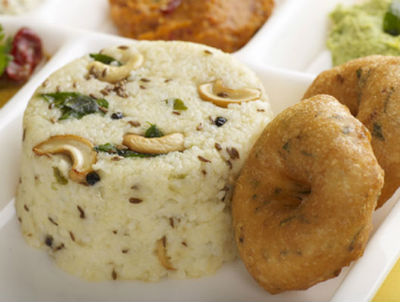Each January, one of the biggest events in the Tamil calendar occurs: the festival of Pongal. The southern states of India come alive at this time of year as the people celebrate the harvest and express their appreciation for the agricultural produce that’s yielded up by the fertile lands of the region – produce that the very livelihood of the population depends upon.
As we bemoan the end of the Christmas season here in the UK, January signifies the beginning of the Tamil month known as Thai in the southern Indian states. The four-day festival takes place at this time every year, in the second week of January, and is a period of celebration where families and friends come together and give thanks for their blessings.
Beginning on January 14, Pongal starts with a flurry of domestic activity. Families clean their homes, get rid of unwanted possessions and there is an ‘out with the old, in with the new’ philosophy which symbolises the renewal and rebirth of the seasons. This day is referred to as Bhogi Pongal and families gather to give thanks to Lord Indra, the deity who brings the rain clouds, providing the water needed to help the crops grow.

The second day, January 15, is known as Surya Pongal – this is the day when the key events of the festival take place. Temples throughout Tami Nadu and the surrounding states organise feasts for the local people. These feasts, known as SamaBandhiVirundu, are a time for the community to come together, prepare and share food as they give thanks for the produce before them.
Traditional Tamil homes decorate their interiors with mango and banana leaves and draw patterns onto the flour with a dusting of rice flour. A typical tradition is also to heat milk until it begins to overflow. Rice is added to the pot to the cries of ‘Pongal! Pongal!’ – and the concoction is then served up to the household, along with an assortment of mouth-watering festival sweets and savouries. The rice and milk combination is also called ‘pongal’ in honourof the festival and this creamy rice pudding is usually flavoured with jaggery, spices and dried fruit and nuts to add texture and flavour to this exotic Indian dish.
On the third day of the festival – Mattu Pongal – the holy cows are worshipped by using bright paints and silvery caps to decorate their horns. The animals are usually bathed and hung with flowers. Crows are also fed on this day as sisters and brothers celebrate their relationships and hope that their bonds will keep them as united as the crow family.
Finally, the fourth day – Kaanum Pongal – is a day for family reunions and giving thanks to those that helped support the harvest.
Why not take your cue from the Tamils and celebrate this January as a time for new beginnings instead of succumbing to the post-holiday blues? Gather your friends and family and head down to one of London’s best Indian fine dining restaurants where you can celebrate your own version of Pongal in style.























